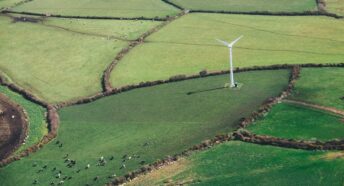Land Use Framework Consultation: CPRE Gloucestershire Responds
Land is a finite resource and in the UK is under more pressure than ever from competing uses. CPRE has long advocated the development of an integrated cross-departmental government land use strategy for England to better inform land use decisions and was pleased to welcome the government’s intention to produce a Land Use Framework for England. The government has consulted on the aims of such a framework and what it should contain. CPRE has responded to the consultation and encouraged each CPRE county group to do the same.
The Foreword to the consultation includes the government’s Vision for land Use in England. It says:
Land in England is changing in response to the climate and biodiversity crises, global shocks, the needs of consumers and businesses, and Government policy. In recent years, farmers have seen some of their most valuable land impacted by increasingly frequent extreme weather events. At the same time, communities have rightfully demanded change to clean up our rivers, lakes and seas.
We want to meet these challenges head on and start a public discussion on how land can deliver our missions for Growth and Clean Energy, boost food security, and meet our statutory climate and nature targets. This Government will be an active partner in the delivery of a fair land use transition which will:
- Make space for nature recovery, water, and emissions reduction…….as we move towards 2050 to help deliver our legally binding targets under the Environment Act and Climate Change Act.
- Support sustainable and resilient food production. The food system needs to support farmers and landowners to invest in the long-term viability of their businesses, contribute to food security and increase their resilience to climate change.
- Deliver new infrastructure and housing. Decision makers at every level need information and tools to deliver sustainable development, including 1.5 million new homes new energy and water infrastructure, and the relatively small area of land use change it requires. We want to use strategic spatial planning to assess gains and losses against national and regional objectives, moving responsibility for managing land use trade-offs away from individual projects.
- Fix the foundations for resilient long-term economic growth……….
- Co-create plans for delivery…………
We understand that the intention is to produce a Land Use Framework at a national (England) level but then, and most importantly, local level Land Use Frameworks. These would inform the preparation of the proposed Spatial Development Strategies to be produced by combined authorities and partnerships of county councils and unitary authorities and subsequently inform the preparation of local plans.
The scale of the challenges
The potential changes needed and the challenges in meeting them are considerable. For example:
- UK domestic production of all food available in the UK is only around 60% of consumption. Food security considerations suggest we need to do better and we can ill afford to lose better quality farmland to development.
- England is now one of the most nature depleted counties in the world. Meeting the government’s biodiversity target of conserving and managing 30% of the UK’s land by 2030 to support biodiversity will need some land use change.
- To help meet climate goals, the government has a target to increase tree and woodland cover in England to 16.5% by 2050. In 2024 it was only 10% (the UK figures are 13% of the total land area with 19% in Scotland, 15% in Wales, 10% in England, and 9% in Northern Ireland).
- New homes with a target of 1.5 million by the end of this parliament and new infrastructure, including solar farms and energy infrastructure will require more land too although with good planning and the right incentives much of this could and should be accommodated on previously developed (brownfield) land) and solar energy installations on roofs
Roger Morlock, summarises the challenge:
“Done well, the new framework could help us build new homes and infrastructure in the most suitable and strategic locations, support nature’s recovery and help to tackle the climate crisis. Land is critical to economic growth, but our finite land should not needlessly be sacrificed in the name of growth.”
CPRE Gloucestershire’s response to the consultation can be viewed in full by clicking the button below.









